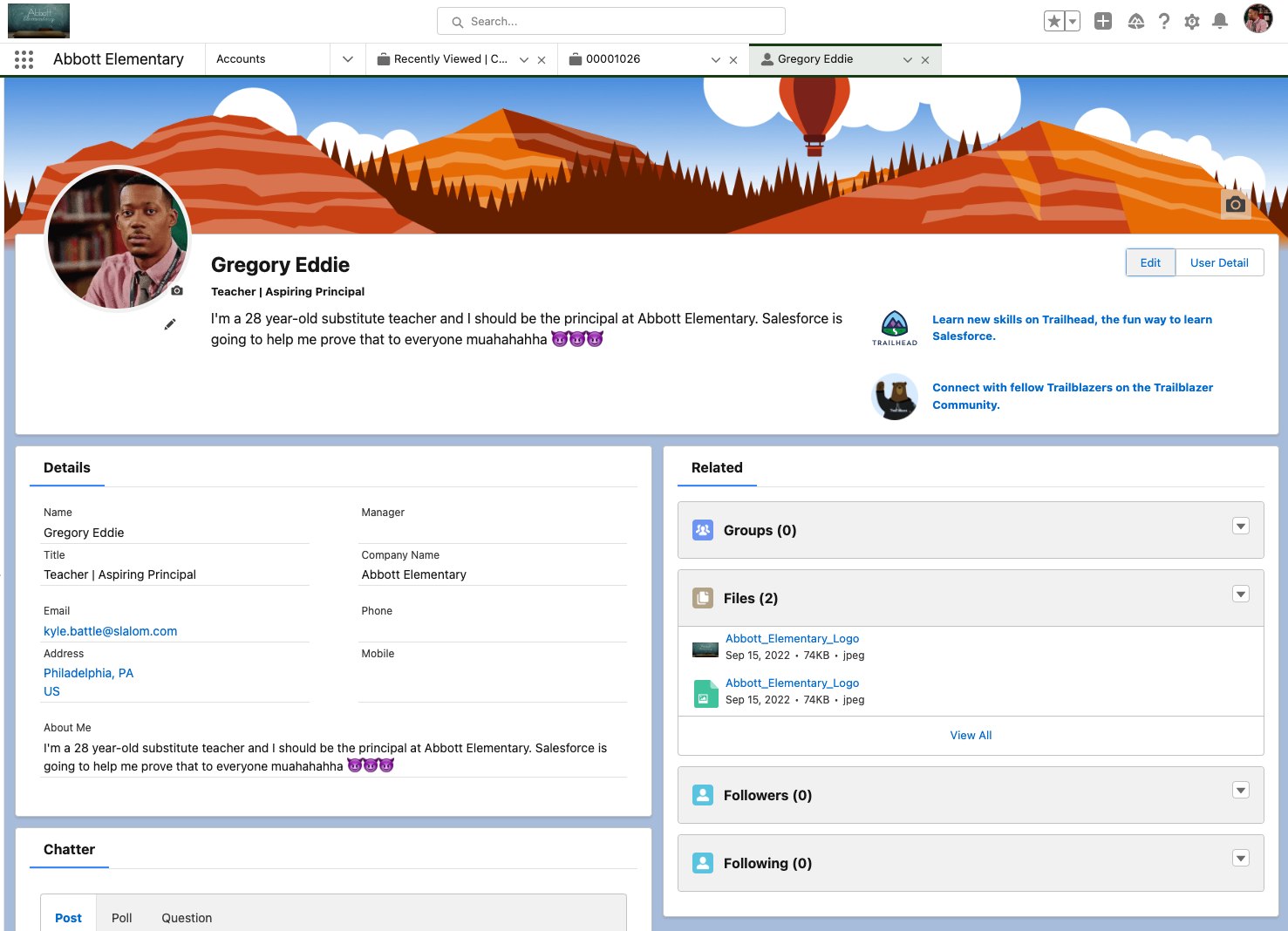⚓️ The History
I never studied business in college. I never studied computer science or anything tech in college. I was a creative writing major, writing poems and short stories to earn the grade, which I ultimately did. After my plans to work in the NFL fell through, I was introduced to Salesforce.
The whole thing made zero sense to me. I didn’t have the business or tech context to digest Salesforce and felt like I was swimming. One day, a former co-worker, Alex Cardona, let me listen to one of his phone calls and then watch him white board his ideas afterwards. After a few calls, things started to make more and more sense.
This was back in 2011, well before the days of Trailhead. So, in the old days, learning Salesforce only really happened this way: by knowing someone who was willing to walk you through.
Eventually the concept of Salesforce made sense to me and the creative in me wondered where else Salesforce could be useful. Without much business acumen at the time, there was only one organization that I knew well enough to even ask the question: Dartmouth Athletics.
⚓️ My First Anchor
I played on the Dartmouth football team my freshmen and sophomore years of college before a back injury ended my career. After that, I got involved with the marketing team and other offices in the Athletic Department. So when the Salesforce light finally switched on for me, Dartmouth Athletics was the only situation I could evaluate through my newly-discovered Salesforce lens.
I knew that when Bill in marketing finished writing the copy for the upcoming basketball game, it had to go to Cyndi in sports information. So I built a workflow to make that happen. I knew that softball coaches needed to track certain information about a recruit that the football coaches didn’t, so I setup a record type for each team. Slowly but surely, I applied the new lessons that I learned to the scenarios I knew of in Dartmouth Athletics and shortly after that I passed the admin exam, and the sales cloud exam.
Dartmouth Athletics was my first Salesforce Anchor.
“The Salesforce Anchor program is designed to help others find and use their own anchors to better learn the Salesforce platform. ”
⚓️ The Vision
I believe that every person beginning their Salesforce journey already has an anchor, they just need to find it. Trailblazers just out of college could use any student or fraternal organization, clubs they were apart of, or the admissions process in general. Didn’t go to college? That’s fine. Consider using your local church, or maybe your car mechanic, or your local real estate agent to anchor your Salesforce learning. Switching careers to join the ohana? Use the knowledge you already have from your previous career to anchor what you learn in Salesforce.
The Anchor Saturdays part of the Salesforce Anchor program is an opportunity for trailblazers to solution live with me while I tackle how to address the problems of a given industry. These sessions are always rooted in something familiar. Rather than teaching with Universal Containers, Cloud Kicks, or Ursa Major Solar, I find common (or well-known) businesses or use cases to teach the same lessons. So far we’ve built:
An on-demand furniture company
A tech-forward barber shop
A youth sports league
A script submission process for a film company
A CRM for Abbott Elementary
What’s Next?
The Salesforce Anchor program is expanding. Each day, the ohana makes clear how hard it is to get real-world experience and how valuable opportunities like Anchor Saturdays are. Next up, the program will include a variety of Anchor scenarios to build out, plus advantages for hiring managers and recruiters as well.
Enroll Now
There are now Anchor Saturday sessions from the past available via my new course library on Teachable.

